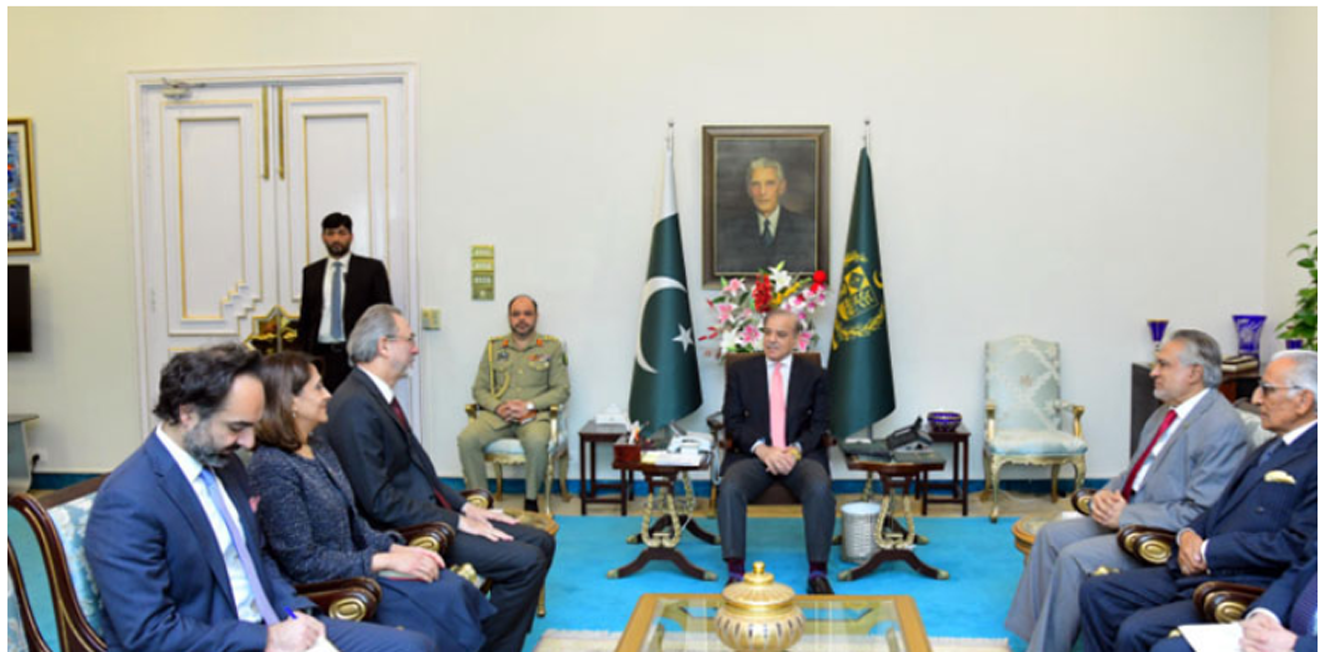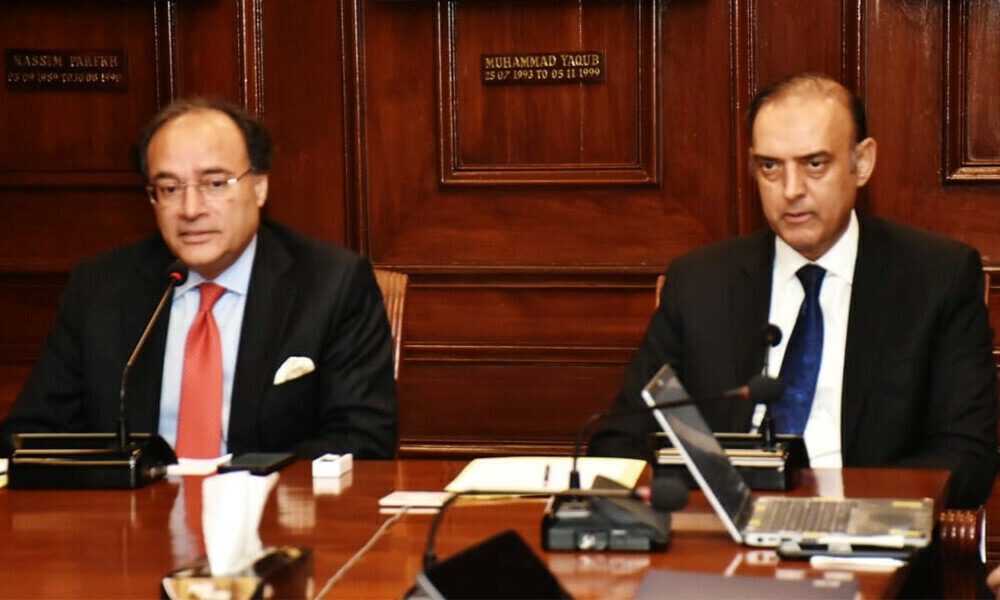Pakistan and Iran on Sunday reaffirmed their commitment to strengthening bilateral ties by setting an ambitious target of $10 billion in trade. The decision came during Iranian President Dr Masoud Pezeshkian’s official two-day visit to Pakistan, marking his first trip since taking office.
The visit, widely viewed as part of Iran’s regional engagement strategy, included high-level meetings with Prime Minister Shehbaz Sharif and key Pakistani officials. Both countries emphasized their resolve to transform diplomatic goodwill into concrete economic and strategic outcomes.
President Pezeshkian arrived in Islamabad to a ceremonial welcome at the Prime Minister’s House, where he was received with a guard of honour. A one-on-one meeting between the two leaders was followed by delegation-level talks involving senior members of both governments.
The Pakistani delegation included Deputy Prime Minister Ishaq Dar, Chief of Army Staff Field Marshal Syed Asim Munir, senior cabinet members, and foreign ministry officials. Discussions spanned a range of regional and bilateral issues, with a strong focus on economic collaboration, security, cultural exchange, and regional connectivity.
One of the most prominent outcomes of the visit was the signing of 12 agreements and memoranda of understanding (MoUs). These agreements span multiple sectors, including:
- Trade facilitation and barter mechanisms
- Border cooperation at the Mirjaveh-Taftan crossing
- Maritime safety and firefighting
- Plant protection and quarantine
- Scientific, technological, and ICT collaboration
- Judicial assistance in criminal matters
- Mutual recognition of product certifications
- Expanded tourism cooperation (2025–2027)
- Cultural, media, and youth exchange programs
- Meteorology and climate risk cooperation
- Air services and aviation
- Intent to finalize a Free Trade Agreement (FTA)
The signing ceremony took place in the presence of Prime Minister Sharif and President Pezeshkian and symbolizes a renewed bilateral momentum.
Currently, the Pakistan-Iran bilateral trade stands at around $3 billion, with both nations agreeing to rapidly scale it up to $10 billion. A statement from the Prime Minister’s Office noted that the two sides would soon hold follow-up meetings to finalize an implementation roadmap.
Key trade-related MoUs included those focused on removing non-tariff barriers, expanding export quotas for Pakistani rice, meat, and fruits, and activating border markets to ease commerce. These moves are intended to bypass traditional trade obstacles and leverage localized exchange models.
During their joint press conference, Prime Minister Shehbaz Sharif condemned Israel’s June 13 strike on Iranian nuclear sites, terming it an act of “unprovoked aggression.” He extended Pakistan’s solidarity to Iran, noting that “240 million Pakistanis stand with the Iranian people.”
Sharif paid tribute to the Iranian scientists, military officials, and civilians who lost their lives in recent conflicts, referring to them as “martyrs”. He praised Iran’s missile response to Israel, calling it a “display of bravery and wisdom” that exposed the weaknesses in Israeli defenses.
President Pezeshkian thanked the government and people of Pakistan for their consistent support, stating that Iran would never forget Pakistan’s solidarity during difficult times.
In addition to economics, both sides agreed to enhance cooperation in science, innovation, tourism, and cultural exchange. Sharif emphasized the importance of people-to-people contact, calling for the 22nd session of the Pakistan-Iran Joint Economic Commission to be convened soon.
The leaders also discussed wider global concerns, including the plight of Palestinians in Gaza. PM Sharif thanked Iran for its vocal support of the Palestinian cause and reiterated Pakistan’s backing for an independent Palestinian state in line with UN resolutions.
The situation in Indian Illegally Occupied Jammu and Kashmir (IIOJK) was also discussed, with Sharif appreciating Iran’s continued advocacy for the rights of oppressed communities.
Pezeshkian’s visit comes at a time of heightened geopolitical shifts in the Middle East, particularly following the Iran-Israel conflict. His engagement with Pakistan is seen as part of Iran’s effort to deepen alliances in South Asia and to find reliable economic partners amid ongoing Western sanctions.
Analysts suggest the renewed Pakistan-Iran cooperation could also be linked to regional projects like the China-Pakistan Economic Corridor (CPEC) and other transnational energy pipelines, where Iran’s strategic position and energy reserves could become increasingly relevant.




